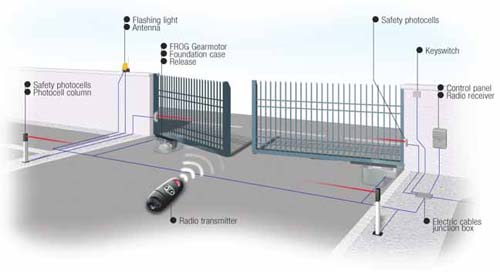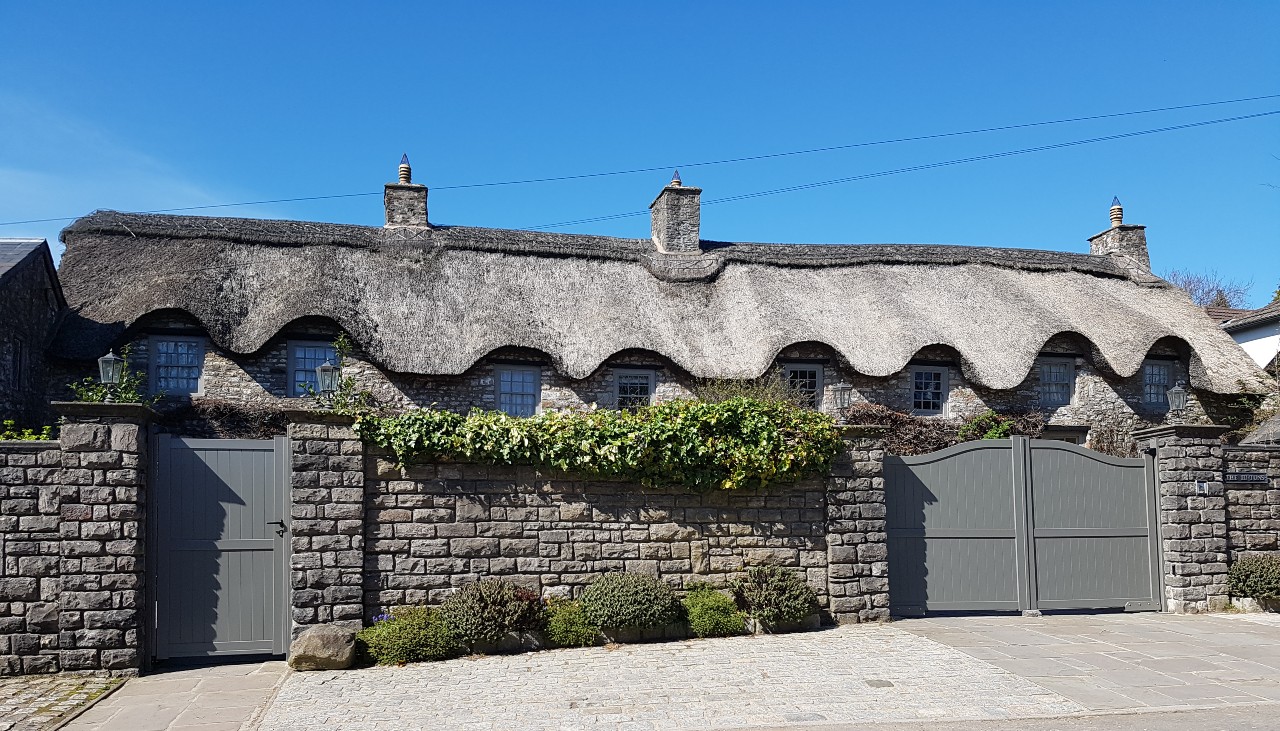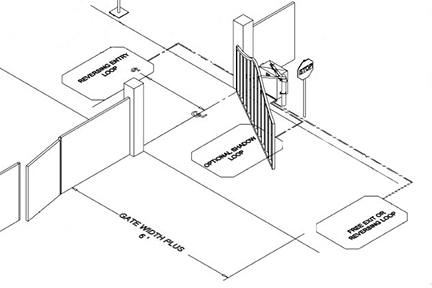Anyone considering whether to install electric gates might ask if they will need planning permission. The answer isn't straightforward, and the prospect of having to make an application can put people off going ahead.
Although it can seem daunting, applying for planning permission for most electric gate installations is in fact relatively simple.
A driveway that satisfies planning criteria can easily be achieved, no matter what your budget or choice of gate.
In some cases, no permission is required at all.
This guide explores planning, and how it applies to automated gates.
What Is Planning Permission?
 If you intend to undertake building work on your property, you may have to make a request for permission to your local planning authority.
If you intend to undertake building work on your property, you may have to make a request for permission to your local planning authority.
In most cases, this will be your local council.
The laws around planning are designed to prevent illegal construction and to protect places of historic interest, local character and the environment.
Permissions will vary from region to region, and between authorities.
If you live in a conservation area, Area of National Beauty (AONB) or National Park, for instance, the criteria for any new development is likely to be a lot stricter.
Before installing electric gates, it's important to clarify with your local authority if you need planning permission.
If you do, then it's your responsibility to ensure that it's granted before any work takes place.
It's much easier to secure planning permission ahead of any installation than it is to have pull down a new gate that doesn't satisfy local planning criteria.
So, for peace of mind, it’s always worth checking if permission is needed.
Permitted Developments
 There are permitted developments that can be erected without the need for planning permission. When it comes to gates, fences, walls and other means of enclosure, much depends on their size and location.
There are permitted developments that can be erected without the need for planning permission. When it comes to gates, fences, walls and other means of enclosure, much depends on their size and location.
If your gates open onto a private or unadopted road, then it's possible to erect a gate up to two metres in height without the need for planning permission.
If the gates open onto a public highway, then each gate can only be one metre or less, or you will need to secure planning permission.
If there have been gates, fences or a wall previously in the same location, then no planning permission will be required because you are replacing an existing boundary feature with something of a similar height.
In other words, if you're replacing one gate with another of the same height or less, then you won't need to secure planning permission.
If the proposed new gate will be higher than its predecessor, then you need permission to install it.
All these factors should be considered before you decide on the size and location of your gates.
If it's possible to avoid having to apply for planning permission by changing your plans, it might be worthwhile doing so.
Conservation Areas, Listed Buildings, National Parks & Areas Of National Beauty (AONB)
If you live in a conservation area, then planning permission may be required for any gate you hope to install.
The same applies to listed buildings.
If you live in a National Park or Area of Natural Beauty (AONB), then it's important to check with the local authority prior to doing any work even if your gates meet the permitted development criteria.
With conservation areas and National Parks, planning regulations can differ between postcodes.
In the former, you will need planning permission to take down a gate and alter the frontage of your property in any way at all.
If you plan to create a replica of the gate being removed, then there's unlikely to be an issue.
As soon as the existing aesthetics are altered, then planning requirements come into force.
Talk To The Neighbours
Whether or not you need planning permission to proceed with the installation of your gate, it's always prudent to talk to your neighbours about your plans.
If you need to make a planning application, carefully explaining what it is you're hoping to do can allay any fears and prevent difficulties arising further down the line.
Issues with dust, noise and access, for builder's vehicles, can cause tension so keeping your neighbours informed about the project is recommended.
What If I Decide To Go Ahead Without Planning Permission?
 It's more common than you might imagine for people to go ahead with projects that require planning permission without it being in place.
It's more common than you might imagine for people to go ahead with projects that require planning permission without it being in place.
It is always a bad idea.
Even if there are no initial complaints, problems can occur several years down the line.
If you did need planning permission, and it wasn't sought, the local authority is legally within its rights to ask you to pull down any building or renovation work.
It's the job of a local planning officer to ensure that all regulations are met, and that the character of the local area is protected.
If they deem that your gates threaten that, then they will instruct you to pull them down permanently.
If you apply for planning permission and it is denied based on your original plans, it's possible to re-submit an amended application.
In this case, it's important to find out why the decision was made and to then amend your proposal accordingly.
If this is done correctly, then it's likely that permission will be granted.
Applying for planning permission needn't be daunting, and in most cases it will be a straightforward process.
Your gate manufacturer and installer will be able to provide advice too.
Remember, before placing an order or planning an installation, it's crucial that you speak to your local planning authority.
A brief phone call may save you a great deal of hassle - and more - later.

























 If you intend to undertake building work on your property, you may have to make a request for permission to your local planning authority.
If you intend to undertake building work on your property, you may have to make a request for permission to your local planning authority. There are permitted developments that can be erected without the need for planning permission. When it comes to gates, fences, walls and other means of enclosure, much depends on their size and location.
There are permitted developments that can be erected without the need for planning permission. When it comes to gates, fences, walls and other means of enclosure, much depends on their size and location. It's more common than you might imagine for people to go ahead with projects that require planning permission without it being in place.
It's more common than you might imagine for people to go ahead with projects that require planning permission without it being in place.
Leave a Comment